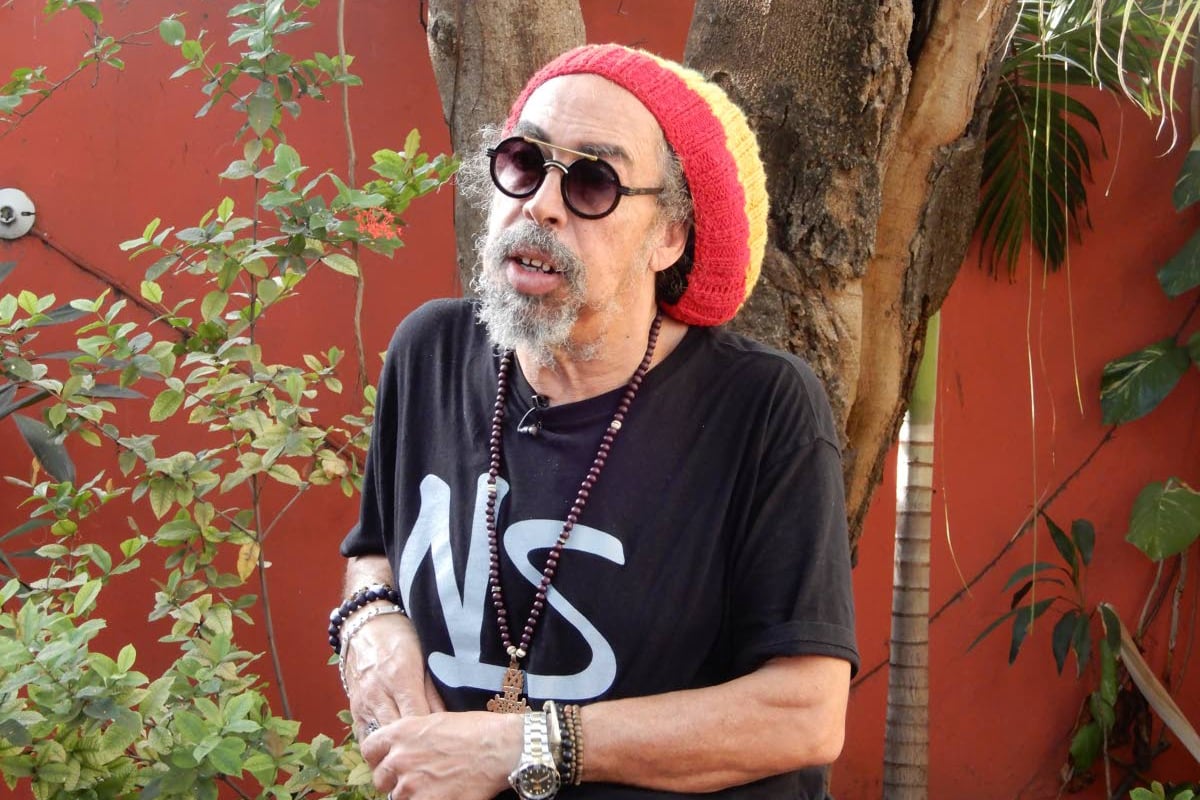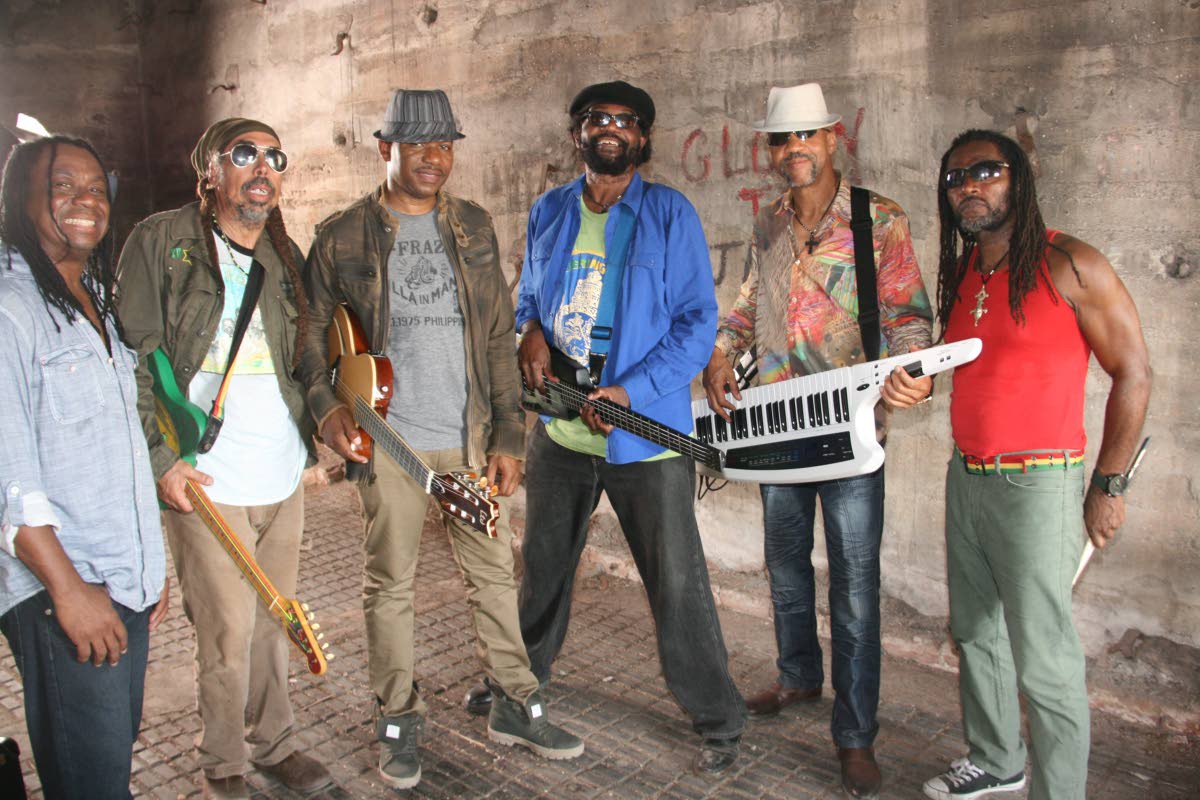Cat Coore Says Dancehall Must Focus On Melody And Musical Presentation

An instrumentalist, singer, and living Reggae legend, Stephen ‘Cat’ Coore has been in the music industry for five decades. As part of the international group Third World, he made chart-topping hits like Now That We Found Love and 96 Degrees In The Shade .
Coore turns 65 today and in this interview, we talked about his journey in music, who inspires him, and the future of Reggae and Dancehall music.
Cat Coore, how are you sir? This has been in the making for some time. How did you get into music?
From a young age my mom put on her gramophone, I used to walk in a circle and when the music stopped I’d stop walking. She identified that the music was in me. She was an accomplished musician and she played the piano. She studied in England at the Royal School and by 1962 I was into music. She encouraged me to play the cello. I did a lot of classical music until I was ten then I fell in love with pop music after hearing the Beatles and Rolling Stones. Nowadays kids think music is boring and they are not interested in the content.
You mean playing instruments?
Yes, they are more interested in being a DJ or the culture but the subculture is the most important part. The reason Damian Marley, who grew up in my hands, is so great is because he went to music school. He was interested in Shabba but a good musical base has served him well. It has paid off tremendously for him.
How did you make the transition to get into a group?
In my neighborhood, everyone wanted to do music and we put together a group called the Alley Cats. We begged our parents to help us to secure some equipment. We started to play some sessions here and there. At the time another band was being formed called Inner Circle. They started out like a real band with the best equipment and then it became my ambition to play in Inner Circle and when I was thirteen years old I got the opportunity because their guitar player went abroad to study. It started there in 1969 or 1970.
At that time Bob Marley said in the 70s artists had a problem recording their music, did you experience that?
I think Bob was more complaining about airplay and producers not giving artists their just due. There was Pluto Shervington, Toots and the Maytals and a lot of artists recorded, but the proceeds from the records mainly went to the producer and the record label. It wasn’t organized properly. The first song I recorded was Cherry O’ Baby and I got ten dollars.
Back then artists recorded for the Festival song competition?
Yes, every year. People like Alton Ellis came up through that then they became international artists.
Why couldn’t the Festival (competition) last in the same way till now?
Well, you had many songs but one winner. Roy Rayon and Tinga Stewart had a run from the Festival competition.
What caused the split from Inner Circle?
In 1973 I broke away from Inner Circle along with two other members and then joined by Ibo Cooper to form Third World. Ibo was the band leader of Inner Circle so he became the leader of Third World.
I just left, because I wanted to do my own thing. They continued with their lineup and had tremendous success with Jacob Miller. At the same time, Third World was doing our thing.
People started to love Jamaican bands because Bob Marley was breaking in England.
What year were you signed?
Chris Blackwell eventually signed us in 75’ and we released the Just Third World album. In 1777, we did the 96 Degrees In The Shade album, and that propelled us. Then in 1978 we did Now That We Found Love and that song went up the charts and we became big stars.

As many modern artists find it difficult to find success, Is there a formula for reggae music that makes it successful overseas?
No, it’s timing. You also have to have a good song and a good beat, melodies. Melody is really the key. BMP is only one part. When you put all of those things together and you catch it right, that’s the formula. It makes your musical presentation.
Damian Marley, you said grew up in your hands and then he executive produced your album, tell me about that?
Damian’s mommy, Cindy and my ex-wife were close. He would stay at my house and we would go to Sunsplash together and we became close as a family. He calls me Uncle and I call him nephew. Seeing him become a great superstar is something special to me. His work ethic along with his brothers is out of the top drawer. They live in the studio.
What has been the most successful moment for you in music?
When we made Now That We Found Love, we went in the top five in the British charts and went to the top twenty on the American pop charts. Also when we released Try Jah Love and got a platinum record. That was special for me.
Are you interested in the Grammys?
We’ve been nominated and never won. We just want to get our fan base extended and do music that reflects 45 years of hard work and success and challenges. We just want to put out great music and give loyal fans what they are accustomed to.
As a legend in the game do you advise young acts to sign and give their masters away or go independent?
Whatever suits you. I would recommend you have a share in the masters or try to own it but you don’t have to own it all out. You can go online and download anything for free, because of downloads and digital platforms the money made by artists is in touring.
How can artists move from being only tour-dependent artists to becoming entrepreneurs?
I am not sure how much is made from advertising but these things can help to propel their capital gains. T-Shirts, caps can also help. When Jimmy Buffet is at a concert it’s only Jimmy Buffet things on sale. Artists have to focus on what’s best for him. Having good management and good management structure can help.
Are you into social media?
Big time. The band has a following too.
Would you go solo?
No, I can do solo work and still maintain Third World. I am thinking of doing a solo project with my two sons but I have no real desire to go solo. I show up and play cello, play at funerals or weddings. I see that as an honor and I do solo work on my own but it’s not something I focus on.
Which young acts inspire you?
I like Chronixx, Steve, Damian Marley, Protoje, Sevana. Their work ethic. I would encourage them big time to keep doing what they are doing. Jamaica has a thriving music industry.
The Dancehall stuff is not up my street and I don’t think it has any staying power.
What would you want to see them do differently to get some longevity?
They need songs that will last a long time. Juggling on a riddim is good but have your thing on the side. Make sure your presentation has class. They are following in the footsteps of great artists so try to be better than you are before.
What can the government do?
We need a nice fifteen thousand-seat theatre. Not only for artists but playwrights, dancers. That should be something that goes without saying.
Cat Coore, Thank you sir.
God bless.
Email worldmusicviews@gmail.com.
